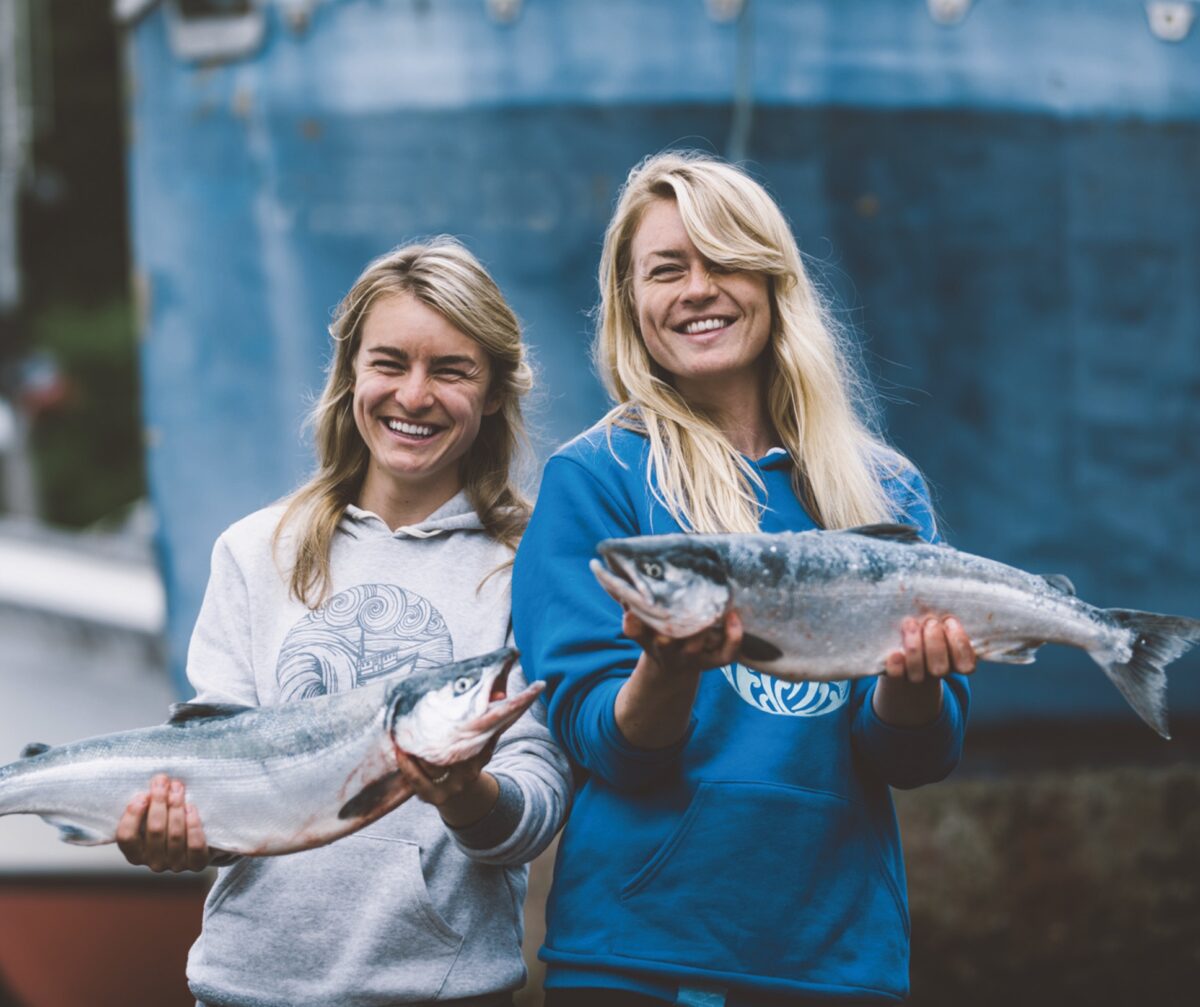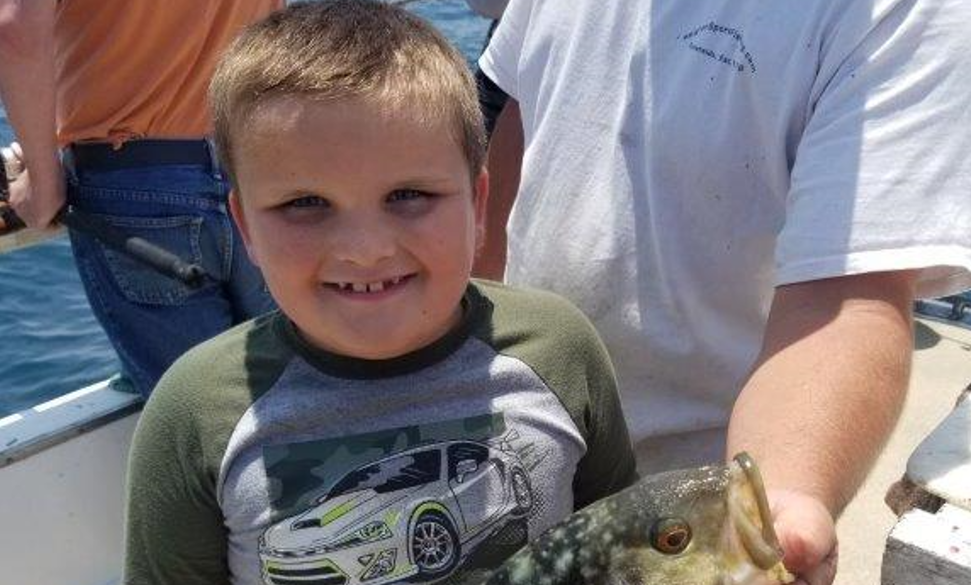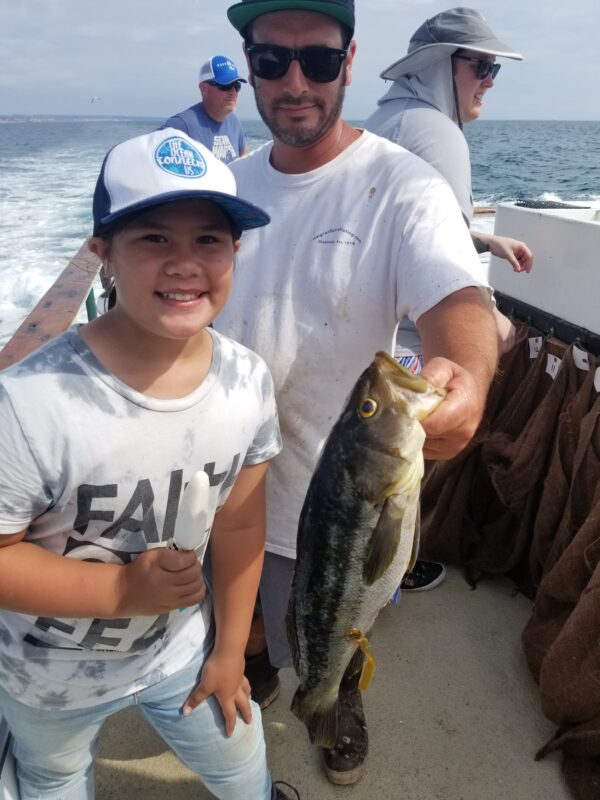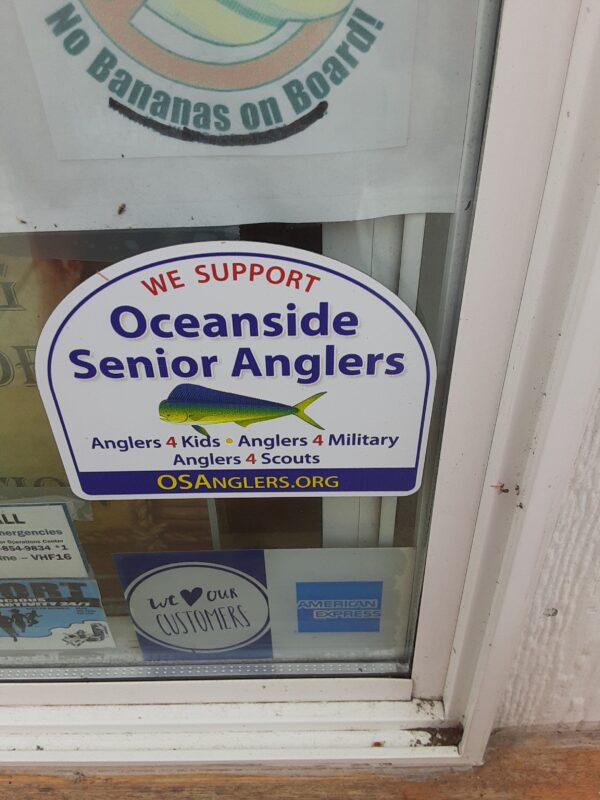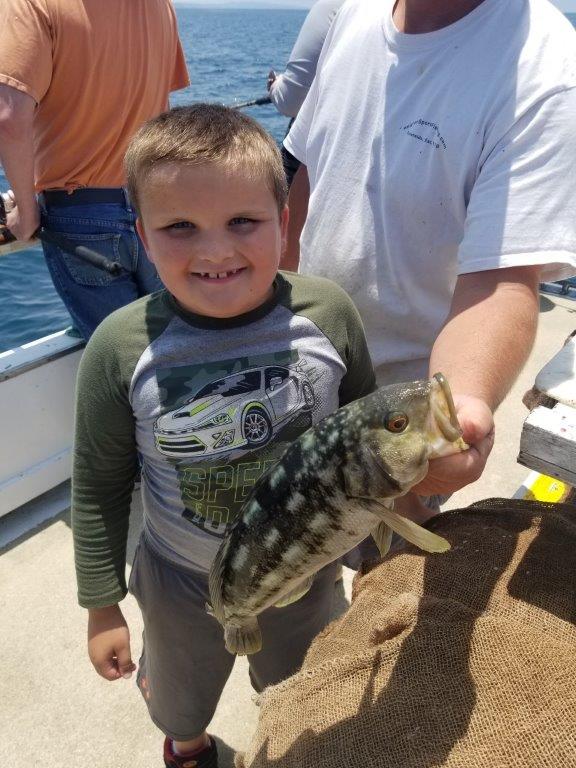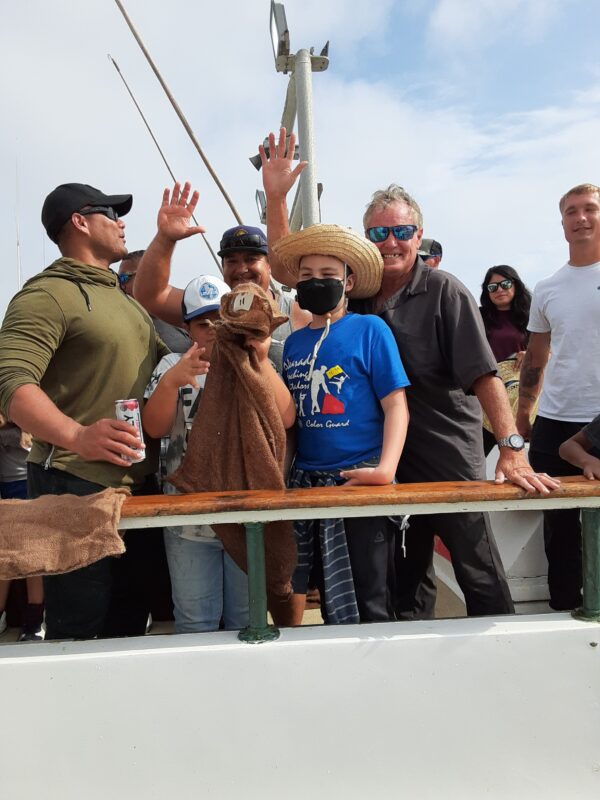There were more fish than people.
Sisters Claire Neaton and Emma Teal Privat were raised on a remote Alaskaisland in a region where salmon outnumbered humans exponentially—10 billion salmon, a few hundred people. Privat and Neaton, whose family ran a commercial fishing operation, lived on a homestead near False Pass, in the Aleutian Islands. They grew up living, breathing, and eating salmon, and absorbing the values a pioneer subsistence lifestyle creates.
“We learned resourcefulness, determination—growing up in such a remote area meant that we relied on ourselves to overcome obstacles,” recalled Privat. “This taught us that nothing was impossible, and we could get through most challenges if we just worked at it for long enough.

“We also learned the value of family and good food—we were a family of four, and we all played a role in the success of our livelihood. As kids, we helped our parents plant the garden, pull fish from the net, pick berries, dig clams, harvest kelp, cook, build, clean, mend, fix. We still work together on the fishing boat today, and it’s great to have that close relationship.”
Fishing was, and is, the foundation of their lives. So why not build a business based on marine everything, just like their own lives? Not only would it provide something to keep them busy in the winter, but it would also offer an outlet for what they learned in college: Neaton studied business and marketing, and Privat English, art, and design.
Thus was born Salmon Sisters, the now 10-year-old, wildly popular retail venture based in Homer that ships salmon, salmon-stuff, and marine-themed apparel to customers elsewhere in Alaska, in the lower 48, and around the world. From this famous little hamlet at the end of the road, customers can order salmon, halibut, and cod, frozen, canned, and “jarred,” to use an Alaskan term referring to salmon that is first smoked, then canned—a deliriously delicious, savory treat.


There are also hoodies, fleece jackets, and pullovers; scarves, headbands, and gaiters; sweatpants and leggings; and the all-important Xtratuf boots, an icon of life in Alaska without which civilization might cease. “These are still our most popular products since we started designing them for women with Xtratuf,” Privat reported. “That first octopus design we created remains our best-seller today.” Having discovered a successful theme, almost all their items are emblazoned with marine-life designs ranging from sand dollars to mermaids to puffins to, of course, salmon.
Call of the Sea
It’s impossible to exaggerate the importance of salmon in Alaska. These anadromous fish are born in almost every stream and river in the state, from the nearly 2,000-mile Yukon River to tiny creeks in Southeast Alaska measured in hundreds of yards. Ten billion salmon grow fat every summer in the food-rich ocean waters of the North Pacific; when they return to fresh water after four years, they are the foundation of Alaska food. Every Alaskan is entitled to harvest about three dozen fish a year for subsistence; most Alaska households have a freezer dedicated just to that. Salmon are celebrated in art, music, language, religion, and literature—and in debates over which kind is best, a topic on which every Alaskan has a fiercely held opinion.
The salmon migratory cycle exerts its force on people, too, Privat explained about the two sisters’ return to Alaska following college studies on the East Coast.
“The seasonal pull of the sea always brought us back for the summer salmon season. It was a constant in an unknown time of life right after college. It made sense to come back for a job we knew how to do, a semi-reliable paycheck, and spending time with our family, but also it was a part of our identity we didn’t know how to live without. It was, and is, deeply ingrained in our family and upbringing,” she recounted, expressing a sentiment shared by hundreds of thousands of Alaskans, whether they fish commercially or just recreationally.


Sustainability and Respect
The two siblings, just a year apart, are both now married and fishing with their respective husbands during all or most of the various commercial seasons in Alaska, and on the boat of their still-active father, Buck. Lean and hale outdoorswomen, their angular bone structure reflects their Lithuanian heritage and resembles the dynamic wild fish they harvest. Both express pride that their state manages its fish stocks rigorously to ensure they are not depleted, and they vow that if Alaska’s sustainable fisheries survive our challenging times, their family legacy can continue for decades.
“Sustainable fishing is written into Alaska’s state constitution, and protecting Alaska’s fisheries with sustainable practices helps address hunger and food insecurity,” Privat pointed out. “In Alaska, seafood is responsibly managed, utilizing a world-leading, science-based approach to help fish stocks, communities, and entire ecosystems thrive for generations to come.”

This issue is directly addressed in the sisters’ recent cookbook, “The Salmon Sisters: Feasting, Fishing, and Living in Alaska” (Sasquatch Press, 2020). Lavishly illustrated by Privat, it contains 50 recipes reflecting their homestead heritage, stories about life growing up in one of Earth’s most remote locales, and pleas for readers to respect the land and seas that feed us. A new book expanding on this theme is scheduled for publication in the fall of 2023.
“As fishermen, we’re lucky to work in incredibly wild places and witness such natural abundance and vitality in them,” Privat said. They also do their part in preserving them.
Salmon Sisters actively opposed the Pebble Mine proposal, for instance, which threatened to place cyanide leach from the world’s largest gold mine in the headwaters of the Bristol Bay fishery. The world’s largest single salmon fishery, Bristol draws 50 to 75 million sockeyes and other salmon every year; record numbers in recent years signify the health of the runs.
Deeply Anchored
The two sisters’ earliest memories are of helping their mother, Shelly, pick salmon from the net in front of their homestead, Stonewall Place.

“Our childhood was rich and remarkable,” the sisters write in their cookbook, “though its reality was challengingly remote as well as extremely dependent on the seasons and the bounty of the sea. Fresh fish was the king of our wild foods, demanding the most work and the most reward.”
Hence their deep dedication to fishing and outdoor life, no matter how successful their retail business may be.
“This is our identity,” Neaton declared. “It’s our source of pride. I am not going to give up fishing for this business.”
“At this point, our Salmon Sisters and fishing businesses have both grown so well it doesn’t make sense to be anywhere else,” Privat added. “We have a team and shops and we’re deeply rooted in the North now, and it feels good to be living seasonally and in connection with our community and nature.
“Our primary value is feeding the world healthy, sustainably harvested wild fish while stewarding the marine ecosystem and celebrating the wild places where we live and work,” she added. “Mother Nature’s gifts leave us with a healthy respect for living things beyond ourselves.”
This article was originally published in American Essence magazine.

